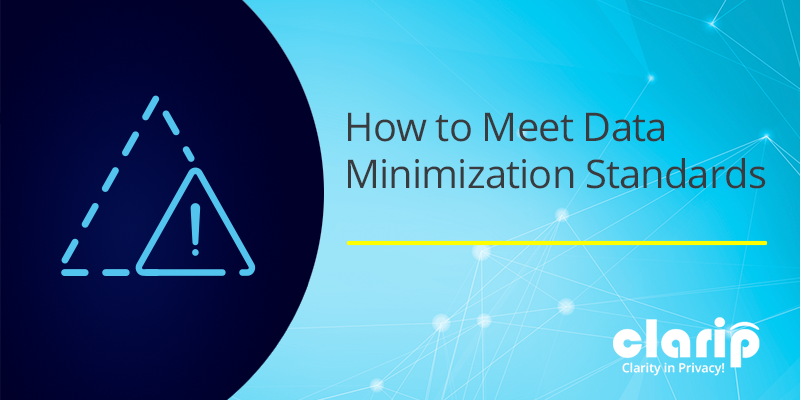How to Meet Data Minimization Standards

Data privacy is a primary focus in the digital age, as personal data is collected, analyzed, and used by organizations in many ways. The principle of data minimization aims to limit the collection and processing of personal data to what is strictly necessary for a particular purpose. Data minimization not only helps protect individuals’ privacy but also reduces the risks associated with data breaches. The effects can have significant financial and reputational risk and costs for organizations.
Data Minimization and Data Privacy Laws
Data minimization is a central principle of many data privacy laws around the world, including the General Data Protection Regulation (GDPR) and the California Consumer Privacy Act (CCPA).
The GDPR requires that personal data be “adequate, relevant and limited to what is necessary in relation to the purposes for which they are processed.” This means that organizations must limit the collection, processing, and storage of personal data to what is necessary for a specific purpose and must delete or anonymize data once it is no longer needed.
The CCPA requires that businesses limit the collection, use, and sharing of personal information to what is necessary for a specific business purpose. The CCPA also requires businesses to provide individuals with a clear and conspicuous notice at or before the point of collection of their personal information, as well as the ability to opt-out of the sale of their personal information.
Here are some practical steps an organization can take to apply data minimization principles:
- Identify the specific purpose for which the data is being collected, and only collect data that is necessary to achieve that purpose.
- Review and assess the personal data you are collecting to ensure that it is relevant and necessary to the purpose. If certain data is not necessary, do not collect it.
- Regularly review the personal data you hold and delete or anonymize any data that is no longer necessary for the specified purpose.
- Implement technical and organizational measures to ensure that personal data is only processed for the specified purpose and is not used or accessed by unauthorized personnel.
- Implement data retention policies that set clear time limits for retaining personal data and ensure that data is deleted or anonymized after it is no longer needed.
The Benefits of Data Minimization
Data Minimization can offer several benefits to organizations. These benefits include reducing the risks associated of data breaches, improving data accuracy, and simplifying compliance with data privacy laws. By collecting and storing only the data that is necessary, organizations can reduce the amount of data that is vulnerable to cyber-attacks. These cyber-attacks have been proven to result in significant financial and reputational damage. Additionally, by limiting the amount of data collected, organizations can improve the accuracy of their data, as it is easier to maintain and update a smaller dataset. Finally, Data Minimization can simplify compliance with data privacy laws, as organizations can focus on only collecting and processing data that is necessary for specific business purposes.
Remove the Guess Work with Automate Data Mapping and Auto-Tagging
The challenges with data minimization are the need to balance the data being collected with the requirements of regulations. Consumer data is constantly changing in scale, and potentially across multiple data stores. By mapping data flows and identifying the types of data collected, organizations can reduce the risks associated with data breaches and ensure their compliance with privacy regulations.
Implementing automated data mapping with Clarip’s patented auto-tagging and categorization technologies, organizations can take the guess work out of the data minimization scenarios. Clarip takes data privacy governance to the next level and helps organizations reduce risks, engage better, and gain customers’ trust!
Contact us at www.clarip.com or call Clarip at 1-888-252-5653 for a demo.
Email Now:
Mike Mango, VP of Sales
mmango@clarip.com
Related Content:
Making the Case for Data Minimization
Automated Data Mapping
Data Discovery
Looking for Product Data Sheets?

 Data Risk Intelligence
Data Risk Intelligence Automated Data Mapping
Automated Data Mapping Do Not Sell/Do Not Share
Do Not Sell/Do Not Share Cookie Banner Solutions
Cookie Banner Solutions Consent & Preferences
Consent & Preferences Data Rights Requests
Data Rights Requests
